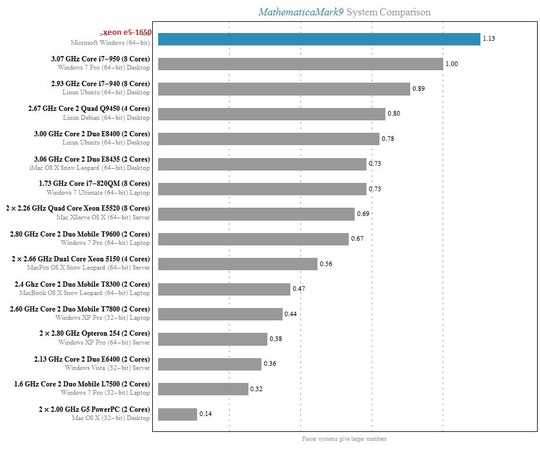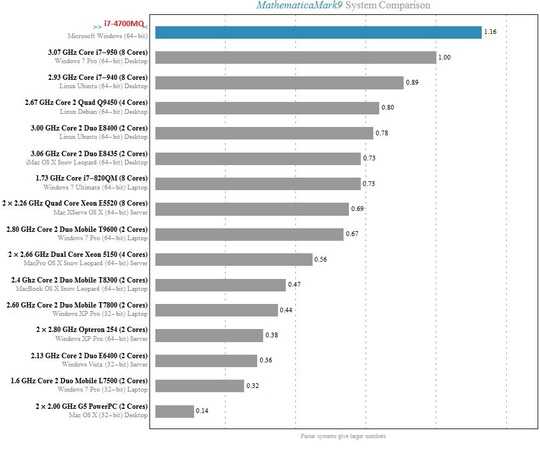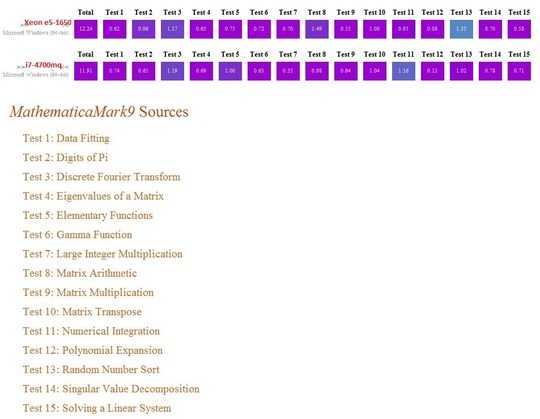0
I have two system one has a Xeon E5-1650 CPU, 24GB of RAM, and a 7200rpm hard drive. The other system which is a Lenovo G510 laptop, has a core i7-4700MQ CPU, 4GB of RAM, and 5400rmp hard drive.
The result of the benchmark for Xeon system:

The result of the benchmark for i7-4700MQ system:

It seems in spite of the fact that Xeon has much higher clock speed, as much as twice, the Mathematica software performs better on a system with much lower RAM and supposedly weaker CPU! Could somebody explain it to me why the result of the benchmark is as it is? I am wondering if I could buy a cheaper laptop and still Mathematica could have an acceptable performance. It seems stronger CPU does not always lead to a faster computation. If I knew the important factor, I could buy a more suitable laptop for myself.
Here are the timing for each test and a description of the test:

You should be able to look at the individual components of the test to see what the slow tests are and which are the fast tests. If not, get another banchmark program. – LDC3 – 2014-06-30T13:53:36.863
@LDC3 I put the timing of each test. – MOON – 2014-07-02T10:01:55.543